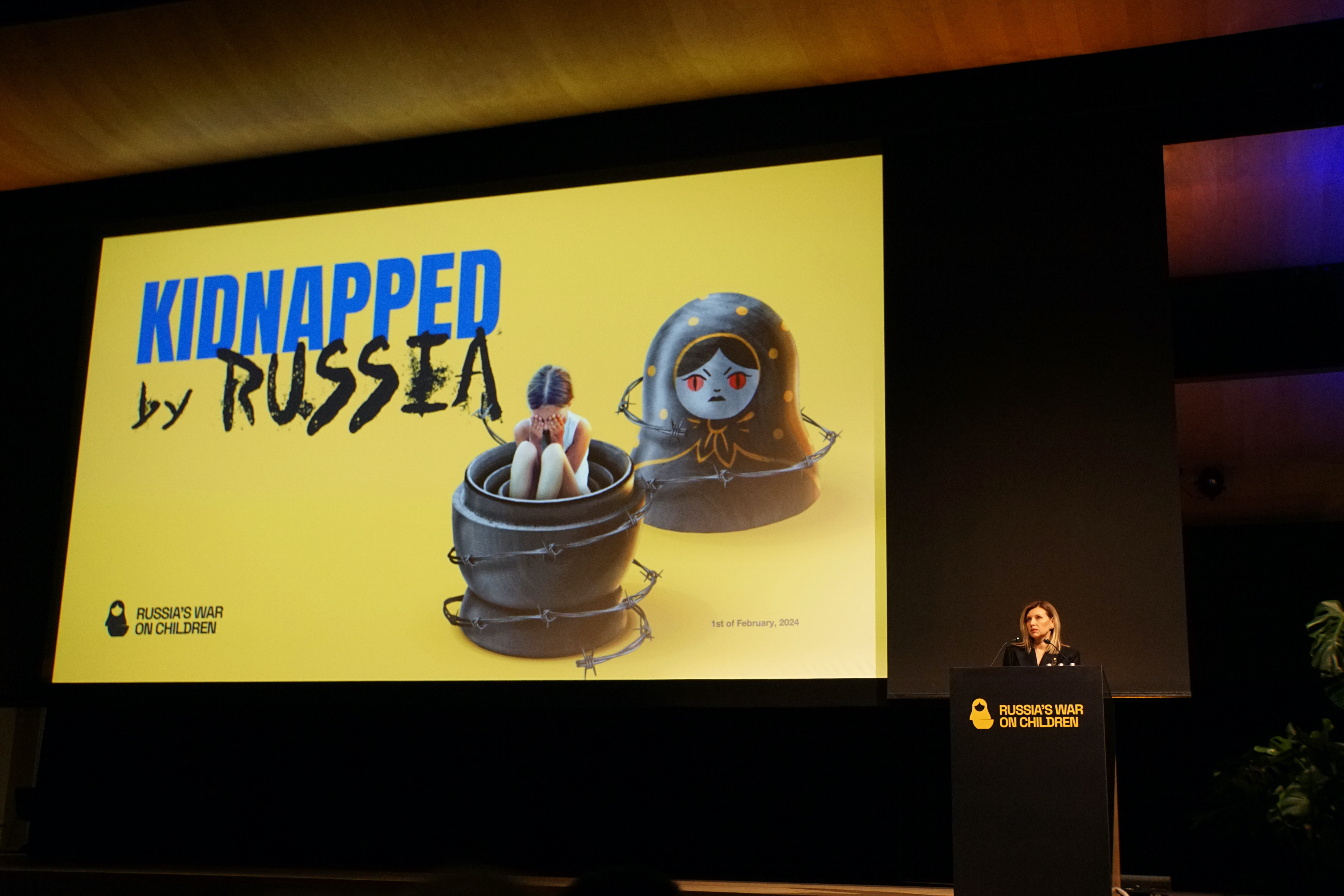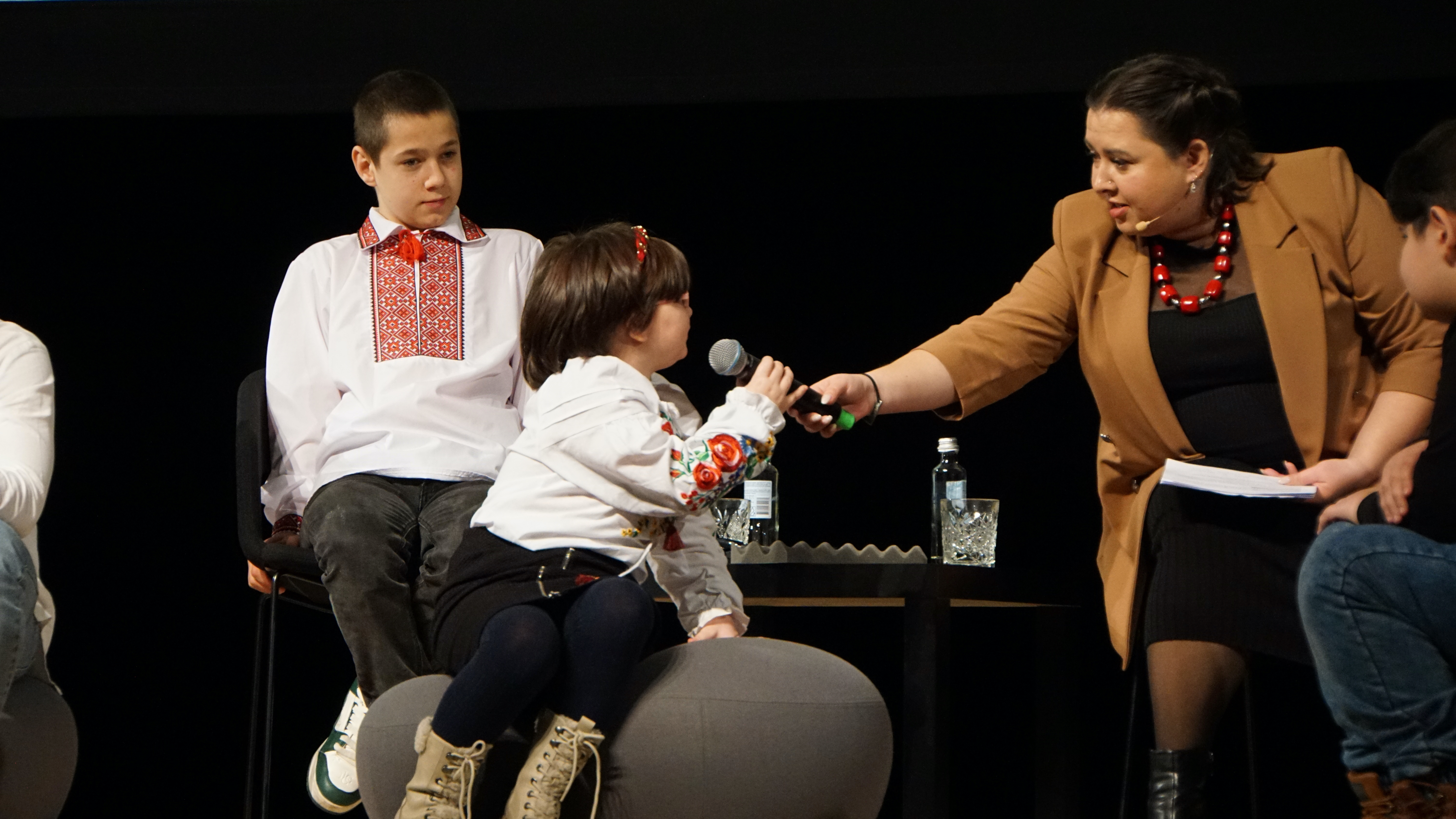Bohdan Yermokhin, an orphan from Mariupol, Ukraine, was 16 years old when Russia began bombarding his hometown.
Yermokhin, now 18, said that Russian servicemen took him to Donetsk. Later, he was transferred to a youth summer camp in the Moscow region.
Eventually, he was taken to a foster family and issued a Russian passport. He said that he was stuck in Russia for a year and half.
“It was a miracle that I returned to Ukraine,” he said, recounting his story at a conference this week in Latvia focused on the kidnapping of Ukrainian children to Russia.
Over the course of nearly two years, Russia has committed countless violations, crimes and atrocities in Ukraine. However, as of now, the International Criminal Court has issued arrest warrants for only one crime of “deportation of children from Ukrainian occupied territories into the Russian Federation,” ICC President Piotr Hofmański said.
According to the Ukrainian government, nearly 20,000 children have been forcibly relocated to Russia since the war started, and officials say they think that’s a low estimate.
The circumstances vary, but usually, the kids are taken from territory that Russia now occupies.
One of the first speakers at the conference aimed at raising awareness about the issue, Ukrainian first lady Olena Zelenska, said “one of the hardest pains from the war [in Ukraine] is the pain of the most vulnerable, the pain of children.”

Often, Russian officials claim that they’re taking children and teens temporarily, for humanitarian purposes, to remove them from a dangerous war zone.
What’s perhaps most surprising is that Russia isn’t hiding what it’s doing.
Russian President Vladimir Putin, speaking last year with Maria Lvova-Belova, Russia’s Children’s Rights Commissioner, said, “I understand you yourself adopted a child from Mariupol, right?”
Lvova-Belova answered,“Yes, thanks to you, Vladimir Vladimirovich.”
In March of 2023, the International Criminal Court issued arrest warrants for Putin and Lvova-Belova. Ukraine and its supporters see that as a step in the right direction, however, there are many Ukranian kids who are still in Russia.
That motivates people like Yermokhin to share his story.
“In Russia, they tell all the Ukrainian kids that Ukraine is the enemy,” Yermokhin said.
He said that the only reason he was let go was because of a public pressure campaign led by a Ukrainian lawyer named Kateryna Bobrovska. She posted a video on Facebook that Yermokhin recorded in Russia.
Ten days later, he was released, in November of last year.
Yermokhin said that he won’t rest until every Ukrainian kid is like him, back home.
Maria Mezentseva, a member of Ukraine’s parliament, was at the conference, advocating for Russia to be held accountable for what it is doing to the country’s youngest people: “Their childhood turned into a nightmare; it’s been stolen actually, they are grownups already, they are adults, because of the traumas they’ve had.”
Russia’s intention, she said, “is to erase the identity, to forbid the native language, which is in most cases, Ukrainian, to erase the culture, to erase the memory.”
Mezentseva said that Yermokhin’s case is an example of what Russia is trying to do. The military issued him two draft notices.
“He was about to turn 18 years old, and they still kept him in this captivity, so he twice received an invitation to serve in the Russian army,” she said. “Recruiting them [ Yermokhin and other children] illegally to the army, making them fight against their own nation, and country, and government. This is the worst which you can think of.”
Mezentseva said that Russia is not going to stop.
That’s why another member of the Ukrainian parliament, Olena Khomenko, is pressuring the EU.
“We need to put more pressure on Russia, more political pressure. We need to sanction all who are involved, into deportation, not only Putin and Lvova-Belova — the leadership, but also all those who are involved.”
She said that time is of the essence and that each child deserves to return home.
